-
Capital:
Zürich
-
Currency:
Swiss franc
-
Time zone:
UTC+1 (CET)
-
Driving side:
Right
-
Country calling code:
-
Language(s):
German, French, Italian, Romansh
Switzerland: An Overview
Switzerland may be most renowned for its watches, but we’d happily settle in for the decadent chocolate. Switzerland was the 25th country to join the Schengen Zone, and it welcomes more than 20 million foreign visitors each year. A mountainous playground, it is a nestled between some of Europe’s most beautiful countries. Part of the incomparable charm are cultural influences from France, Germany, Italy, Luxemburg and Austria. Hailed for its alpine climate and scenery, this geographically small country boasts incomparable alpine skiing and mountaineering. From cosmopolitan Zürich to the castles that dot the shores of Lake Geneva, to the glamourous ski resorts of the Zermatt region, to the capitol Bern, embellished by medieval architecture and rife with museums, Switzerland will enchant you with a charming mix of European charm and high culture.
Travel Documents
Your passport must be valid for at least three months beyond your planned date of departure from the Schengen area. You must have at least one blank page for stamps in your passport. If your stay is beyond 90 days, you will need a Travel Visa. If you are a citizen of and ETIAS-eligible country, you will need an approved ETIAS to travel to Switzerland beginning in 2021. Learn more about the application process and sign up for ETIAS alerts to get the latest news.
Be sure to make photo copies of all your travel documents to take with you on your trip. It also makes sense to leave copies with a family member or friend back home.
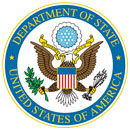
Switzerland : An Overview
Sulgeneckstrasse 19
CH-3007 Bern, Switzerland
Tel: 031 357 70 11
Web site: https://ch.usembassy.gov
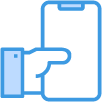
Emergency Switzerland Telephone Numbers
| Police: |
117
|
|---|---|
| Ambulance: |
114
|
| Fire and Rescue: |
118
|
| European Union's universal emergency number: |
112 (112 is the equivalent to 911 in the US)
|
Where to Go
-
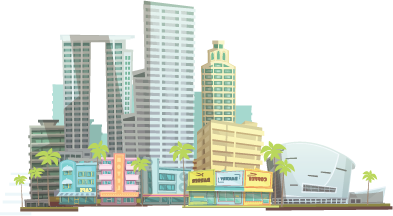
The City
Bern, the capitol of Switzerland, rests along the River Aare; it lies just a bit north of the Bernese Alps. For all its big-city features, like a plethora of cultural attractions and museums and cosmopolitan dining scene, it has a surprisingly quaint vibe. Bern’s architecture is mostly medieval; the city’s history dates to the late 12th century. Its Old Town boasts eleven renaissance fountains and a day could be spent discovering them all! Since the 16th century Bern has kept its own bears, and visitors can meet the current three in their spacious enclosure at park just across the river. Zürich is a culturally vibrant city perched at the northern tip Lake Zürich, known for a plethora of both water sports and shoreline activities. The bustling metro area is filled with culture and shops, and countless restaurants populate the historic Niederdorf district. Galleries, museums and jewelers abound; exploring this cosmopolitan city is a rewarding way to spend a day dovetailed with a flight day, or all on its own.
-
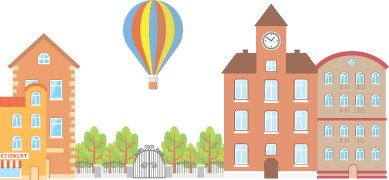
The Mountains
Switzerland is synonymous with skiing and alpine activities. Its showstopping mountain peaks are some of the country’s most recognized symbolism. The two primary mountain regions are the Alps (south and east) and the Jura (north and west). But the most famous in all of Switzerland is “the mountain of all mountains,” The Matterhorn, in Zermatt. It straddles Switzerland’s southern border with Italy and boats an elevation of 14,692 feet and 365 days of skiing a year. Whether Zermatt’s famed altitudes and vertical, the glam of St. Moritz, “the worlds original winter sport’s resort” with its après ski nightlife, or Grindelwald – Wengen with its majestic north face smiling down on the pretty mountain village, the Swiss mountains beckon millions of travelers year ‘round.
-
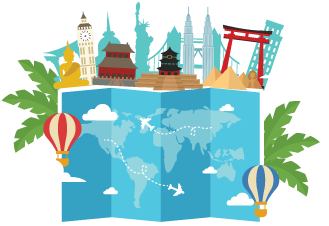
Neighboring Countries
Switzerland borders five European countries: Austria, France, Italy, Germany, and Luxembourg. Switzerland joined the Schengen Zone in 2008. Each of these countries bordering Switzerland is in the Schengen Area and will require ETIAS approval beginning January 2021.
Travel Tips
ELECTRICAL OUTLETS AND ADAPTERS FOR US PRODUCTS
Switzerland uses C, & F Plugs. You will need an adapter and maybe a transformer to use products made for the US electrical grid. Switzerland runs on a 230 (220) volts, 50 hertz AC current, while US runs on 120 (110) volts and a frequency of 60 Hz AC current. Many American products are able to run on 230 (220) volts, 50 hertz AC current. You need to check your electrical product to make sure it is labeled "dual voltage" before you plug it in, otherwise you may burn out the components rendering it useless. Learn more about the different European plugs and currents here.
PICKPOCKETS AND THEFT
Nearly all crimes suffered by tourists in Switzerland are nonviolent and avoidable, however you should be prepared for pickpockets. Europe’s transit systems are notorious for pickpockets.
- Being vigilant is your best friend when you are in high theft areas: train stations, trains, city buses, subways and open air shopping areas.
- Store important documents, money and phones in zippered or buttoned pockets, specialized travel day bags or a money belt.
- You should never leave your bags unattended! Make sure you can see them at all times. Better yet, you should keep in physical contact with your bags in public places.
MOBILE PHONES
First, be sure to check that your phone will work in Switzerland. The easiest way to find out is to check with your mobile phone service provider. You can also find out if your service provider offers international plans for Switzerland. We recommend signing up for an international plan if you plan on using your smart phone to connect to the internet or use the travel apps you may have installed on your phone. If you decide not to sign up for an international calling and data plan, costs can add up very quickly!
Free WI-FI can be easy to access, but can be very slow or not available in the countryside. Sign up for a Virtual Private Network (VPN) services to secure your phone, tablet or computer when using public Wi-Fi networks. This prevents hackers from accessing your device when using free Wi-Fi.
EUROPEAN TAXIS, BUSES AND SUBWAYS
- Taxis - A good rule of thumb is use a prominent taxi service, one that has a company logo and a telephone number on the car. Avoid using taxis that just have a taxi light on the top of the car. Make sure the taxi driver is using the correct rate for the time of the day and day of the week. Nighttime and weekends have higher rates. When taking a taxi that has a set fare, for example to a Switzerland airport, make sure you establish the price before you leave.
- Buses and subways - Most European cities have a great public transportation system. The cost of a transit pass for the entire time of your stay can equal the cost of one or two taxi rides. Check out the ticket options that are offered at subway stations, bus terminals and train stations. Get a transit map or download a transit app to your smart phone. Google maps have transit maps for most Switzerland cities.
EXCHANGING CURRENCY IN SWITZERLAND
The most important thing you should understand is how exchange rates work. The Swiss Franc usually has a higher exchange rate compared to the US dollar. So if you want to get 100 Swiss Franc and the exchange rate is $1.10 for one Swiss Franc, it will cost you 110 dollars to get 100 Swiss Franc. There are many currency conversion apps you can down load to your smart phone to get up-to-date exchange rates.
Many people like to get Swiss Francs through their bank before they leave for their trip. Check out what fees the bank charges for this service. Different banks have different fees. These fees can be expensive, so it pays to shop around.
When in Switzerland avoid using currency exchange companies or booths. These companies can charge up to 15% to 20% of the amount you are exchanging. Switzerland banks can also charge high fees to exchange money. You best bet is to use your ATM card with an established bank to get local currency.
DEBIT CARDS AND ATMS
First, make sure that your ATM card can be used internationally. Second, see what your bank charges for international ATM fees. Third, see what is the maximum amount you can withdraw each day. While there are fees associated with using an ATM card, they are usually much less than the fees charged by Switzerland banks and currency exchange companies. ATM fees are a flat fee not a percentage. So when you are withdrawing money using your ATM card, take out the maximum amount to reduce amount of ATM fees you will incur. Also it is a good idea to use bank ATMs instead of third party ATMs, which can charge higher fees.
CASH VS CREDIT CARDS
Using local cash is key for the European tourist. Some businesses do not accept credit cards and many businesses charge a higher price when using a credit card due to the credit card fee they pay to the credit card company. Many businesses will take US dollars, but then you will need to figure out the exchange rate to ensure you are being charged the correct amount and receiving the correct change. Having smaller bills is better than large bills. Also remember to keep your cash secure in pickpocket proof pockets or a money belt.
US credit cards are widely accepted across Switzerland. Just in case, check with bank to be sure your credit card will work in Switzerland. Before you leave on your trip, sign up for a credit card that has no foreign transaction fees. If you don’t, you may be in for a surprise when you get your credit card statement that contains lots of foreign transactions and currency conversion fees.
It makes sense to use a credit card for hotels, car rentals, Eurail pass, upscale businesses and restaurants. Limit the number of credit cards you take with you. Bring one back up credit card in addition to the main card you intend to use. Be sure to contact your credit card company and let them know the dates you will be traveling abroad.
TIPPING IN SWITZERLAND
Generally speaking, if someone in the service industry provides great service for you, a tip of a couple of euros is acceptable, but not required.
- Restaurants - 5% to 10%, with 10% being for over the top service. Be sure to check to see if service has already been included in the bill
- Taxis - round up to the nearest Swiss Franc, for example, if the fare is 5 Swiss Franc give them 6
- Hotel porters - one Swiss Franc for every bag
Medical Information
Here’s the good news: most of Europe, including Switzerland, has a universal health care system that takes care of everyone – including foreigners. If you need healthcare due to illness or injury while traveling in Switzerland, you won’t have to worry about getting treated. There will be out-of-pocket costs, but those are generally reimbursable depending on your health insurance.
IMPORTANT HEALTHCARE HINTS
- Pack enough of any prescription medications for the length of your stay, in their labeled, original containers. It is smart to add a few more pills than you need, just in case you stay longer.
- Bring a small first aid kit with over-the-counter necessities.
- In an emergency call 112, that’s the “911” in Europe.
- If you have a non-emergency health issue, go to the nearest pharmacy first. Switzerland pharmacists can actually diagnose and prescribe medications for minor issues like sore throats, sinus and stomach issues and minor aches and pains.
- If the pharmacist can’t help you, go to a clinic. They’re much like our stateside urgent care clinics, and providers can order any tests you might need like x-rays.
- Ask for a House Call. Your hotel will most likely be able to have a physician come to your room if need be.
- Most embassies and consulates have lists of physicians and hospitals in major cities. Go on the U.S. Embassy’s site, choose your destination and look under U.S. Citizens Services section.

